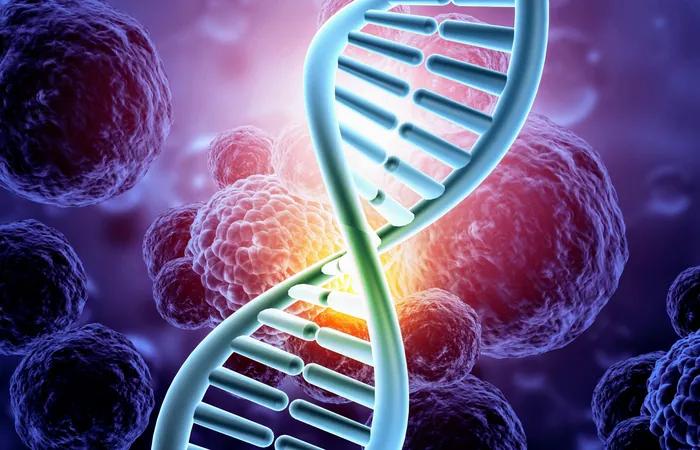
How Meat Revolutionized Human Evolution: Unveiling the Genetic Secrets
2025-05-30
Author: Mei
The Surprising Role of Meat in Our Evolution
Human evolution isn’t just a tale of survival—it’s a story of transformation, and meat played a starring role. A groundbreaking study published in Cell Genomics reveals that a specific genetic mutation, linked to our meat-eating ancestors, kickstarted significant changes in our height and metabolism.
When Diet Meets DNA: The Meat Connection
According to lead researchers Jin Li and He Huang from Fudan University, the shift from a plant-based diet to one rich in meat marked a pivotal moment in human evolution. This dietary revolution didn’t merely change our meals; it directly impacted our biology, influencing traits like height. The key lies in the rs34590044-A variant, which governs the gene ACSF3—central to how our bodies metabolize meat.
Unlocking the Genetic Code: What Meat Does to Us
This gene resides in our mitochondria, the powerhouses of our cells, and is crucial for breaking down amino acids, particularly those from meat sources. Increased expression of ACSF3 correlates with heightened metabolism and bone growth. Using data from nearly half a million individuals, scientists pinpointed this particular variant as a major factor affecting both height and metabolic rate.
Animal Studies Reveal the Power of the Meat Gene
Through rigorous testing in computer models and live subjects, researchers discovered that mice with the ACSF3 variant consumed a meat-like diet experienced notable growth and energy expenditure. Conversely, without the variant, metabolic processes slowed, leading to stunted growth. However, simply revitalizing ACSF3 expression led to a remarkable turnaround in health and vitality.
Tracing Our Ancestry: Ancient Roots of the Meat Gene
The research didn't just focus on modern humans; it traced the genetic variant through history. The evidence suggests that as our ancestors embraced meat-eating cultures like the Yamnaya, the gene flourished, while it waned in early agricultural societies. This mutation became more prevalent again in the last 5,000 years, illustrating how evolution adapts to dietary changes.
The Unsung Hero: ACSF3's Role in Our Evolutionary Journey
Although ACSF3 doesn’t dictate muscle or bone formation directly, it regulates their growth by ensuring a steady supply of energy. This gene also plays a vital role in detoxifying byproducts that can impede cellular functions. Experiments have shown that when this gene is deactivated in mice, their energy plummets and bone growth halts, but reintroducing it alongside meat-derived amino acids restores their vitality.
Looking Ahead: What This Means for Modern Humans
This research unveils the complex interplay between genetics, diet, and evolution. It challenges our understanding of modern metabolic disorders like diabetes and obesity, showing how our ancient adaptations influence contemporary health. As our diets evolve today, this ancient genetic heritage could guide our future.
Conclusion: Meat’s Impact on Human Resilience
The findings underscore that our ability to thrive on meat provided evolutionary advantages, fostering greater energy and agility. In a world where resources may dwindle, these genetic adaptations allowed our ancestors to better navigate their environment. As researchers continue to explore human evolution, they aim to uncover even more traits shaped by our dietary history—making sure we understand not just where we came from, but how our past continues to influence who we are today.


 Brasil (PT)
Brasil (PT)
 Canada (EN)
Canada (EN)
 Chile (ES)
Chile (ES)
 Česko (CS)
Česko (CS)
 대한민국 (KO)
대한민국 (KO)
 España (ES)
España (ES)
 France (FR)
France (FR)
 Hong Kong (EN)
Hong Kong (EN)
 Italia (IT)
Italia (IT)
 日本 (JA)
日本 (JA)
 Magyarország (HU)
Magyarország (HU)
 Norge (NO)
Norge (NO)
 Polska (PL)
Polska (PL)
 Schweiz (DE)
Schweiz (DE)
 Singapore (EN)
Singapore (EN)
 Sverige (SV)
Sverige (SV)
 Suomi (FI)
Suomi (FI)
 Türkiye (TR)
Türkiye (TR)
 الإمارات العربية المتحدة (AR)
الإمارات العربية المتحدة (AR)